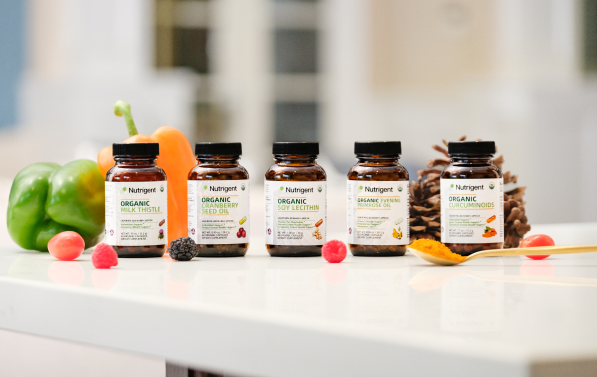Free Ship Over $75
15% OFF First Order
-
Shop
NEW & NEATURED
SHOP BY HEALTH BENEFITS
-
About Us
-
Shop
NEW & NEATURED
SHOP BY HEALTH BENEFITS

-
About Us
Free Ship Over $75
15% OFF First Order



Coenzyme Q10 (CoQ10) is a naturally occurring, fat-soluble coenzyme found in virtually every cell of the human body, primarily located in the mitochondria — the powerhouse of the cell. It plays a critical role in the synthesis of ATP, the “energy currency” that fuels nearly all cellular processes.
CoQ10 exists in two forms: the oxidized form (ubiquinone) and the reduced form (ubiquinol), which can be converted back and forth within the body. When ubiquinone is taken orally, it is converted into ubiquinol during absorption. In the bloodstream, CoQ10 mainly circulates as ubiquinol. Within cells, both forms are present and continuously interconverted to support vital cellular functions.
As the body ages, especially beyond age 40 or during illness, the ability to convert ubiquinone into the more bioavailable ubiquinol diminishes significantly. Therefore, supplementing with ubiquinol directly is often a more effective option. It is more readily absorbed and utilized by the body. Additionally, since CoQ10 is fat-soluble and poorly water-soluble, taking it with dietary fats can enhance its absorption and bioavailability.

Since CoQ10 is vital for energy production in all cells, a deficiency may result in fatigue, muscle weakness, and reduced physical performance. CoQ10 production peaks in our twenties and declines with age, with the decrease in heart tissue being particularly significant. Supplementation may be especially beneficial for: Adults over 20 under high stress, older individuals, and those taking medications like statins (for lowering cholesterol), which can reduce natural CoQ10 levels.

The appropriate dosage of CoQ10 depends on individual health conditions and should ideally be determined in consultation with a healthcare provider. That said, CoQ10 is naturally present in the body and is generally well-tolerated, with mild side effects such as stomach discomfort, nausea, vomiting, or diarrhea occasionally reported.
According to the U.S. National Institutes of Health (NIH), CoQ10 is considered safe as a dietary supplement. Although elevated liver enzymes have been observed in some individuals taking 300 mg or more per day, no cases of liver toxicity have been reported.[1] Typical supplemental dosages range from 100 to 300 mg/day. Doses as high as 1200 mg/day have been shown to be safe and non-toxic.[2] Furthermore, studies indicate that long-term supplementation with ubiquinol is also safe for human use.[3]
References:
[1] PDQ Integrative, Alternative, and Complementary Therapies Editorial Board. PDQ Cancer Information Summaries [Internet]. National Cancer Institute (US); Bethesda (MD): Jun 7, 2022. Coenzyme Q10 (PDQ®): Health Professional Version
[2] Hidaka T, Fujii K, Funahashi I, Fukutomi N, Hosoe K. Safety assessment of coenzyme Q10 (CoQ10). Biofactors. 2008;32(1-4):199-208
[3] Deshmukh G, Venkataramaiah SB, Doreswamy CM, Umesh MC, Subbanna RB, Pradhan BK, Seekallu S, Sekar R, Prabhu K, Sadagopan S, Arumugam SN, Sharma S, Gavara G, Balaraman S, Sambasivam G, Chandrappa RK, Flynn S, Shivarudraiah P. Safety Assessment of Ubiquinol Acetate: Subchronic Toxicity and Genotoxicity Studies. J Toxicol. 2019;2019:3680757
Customer Support: If you have any questions or need assistance, please contact our customer service team info@nutrigent.us. Our service hours are Monday to Friday, 9:00 AM to 5:00 PM.
DISCLAIMER: *These statements and any claims made about specific products on or through this site have not been evaluated by the Food and Drug Administration and are not intended to diagnose, treat, cure, or prevent any disease. This site is not intended to provide diagnosis, treatment, or medical advice, and all content provided is for informational purposes only.*